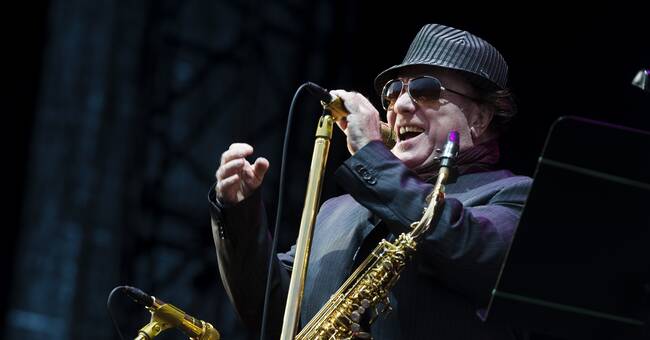Over the past year, Van Morrison has emerged as a vocal critic of Britain's coronary restrictions.
The Belfast singer released three controversial "protest songs" in September, in which he sang that the government was depriving people of their freedom and that researchers were inventing "rogue facts" to justify an "enslavement" of the population.
The proceeds from the songs go to the singer's "Lockdown" fund which helps musicians with financial problems due to the pandemic.
Eric Clapton recently joined and they did the song "Stand and deliver" together.
The songs have received harsh criticism, including from Northern Ireland's Health Minister Robin Swann, who says Morrison's comments are dangerous and block conspiracy theories.
Challenges in court
Now, however, Morrison goes a step further and takes the matter to court.
His lawyer, Joe Rice, has primarily contacted the government with the call to lift the ban.
If that does not happen, Morrison will ask the Belfast Supreme Court to review the government's policy.
According to Morrison, the ban is illegal and has no scientific basis.
"We do not know of any credible scientific or medical evidence to justify this ban ... and we will challenge it in the Supreme Court," said Joe Rice.
Rice adds that Morrison acts "on behalf of thousands of musicians, artists, organizers and others in the music industry."
The lawyer hopes that the case will be taken to court within a few weeks.
Shutdown for six weeks
Britain has been hit hard by the corona pandemic and is now battling its third and deadliest wave of infections.
Local governments in Scotland, Wales and Northern Ireland have imposed severe restrictions on an ongoing basis during the pandemic.
Most recently, Northern Ireland closed the region for six weeks.
Live music has been partially banned since March, but now the ban also applies to authorized concert venues.
Morrison believes that the Northern Ireland Government's total ban means that the region's artists and musicians are hit extra hard.
Morrison himself played in England before the restrictions became tougher there.
"This (the ban on live music, editor's note) is different from the laws in England and Wales," says Joe Rice.

